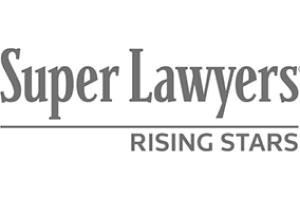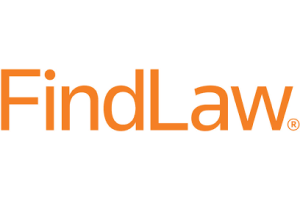as a Consumer
Fair Debt Collection
Debt Collector Help
Debt is a fact of life for most Americans. From school loans to credit card bills, consumer debt help remains a priority. In many cases, consumers take on debt in order to afford necessities. Funding a college education, reliable transportation or a home, and other necessities means incurring debt. As debt piles up, bills and collection letters fill the mailbox, and constant calls from debt collectors means avoiding answering the phone.
It’s easier start dealing with debt once you learn your rights. Consumer protection laws act as a safeguard for consumers who need debt relief. Instead of stressing about debt, turn to our attorneys for help. Thompson Consumer Law Group is skilled in consumer protection law, and our debt help attorneys work with consumers every day to stop debt collectors cold.
We may be able to stop unfair debt collection practices and hold those who are in violation accountable. We may also be able to assist with fighting a collection lawsuit or wage garnishment, settling debts, or filing bankruptcy. Contact us today for a free, no obligation case review. Our resources may help improve your financial future.
Fair Debt Collection
Just because you owe a debt, it doesn’t give a debt collector or collection agency the right to treat you unfairly. As a consumer, you have rights under the Fair Debt Collection Practices Act (“FDCPA”) and other state laws. Debt collectors may not use unfair, abusive, or deceptive practices to retrieve money they claim you owe them. Debts covered under the FDCPA include your personal, household and family debts, including credit card balances, auto loans, medical bills and an unpaid mortgage. The FDCPA protects you from collectors trying to collect on debts you do not owe as well. And there are literally hundreds of different illegal ways debt collectors can violate your rights. These tactics include harassing and abusive conduct, misrepresenting the debt, improper disclosures of your rights, illegal collection lawsuits, and more.
You can sue a debt collector for these unfair and illegal tactics, regardless of whether you were ultimately intimidated into paying the debts. The Fair Debt Collection Practices Act and other related consumer protection statutes give you specific legal protections. Victims of debt collection abuses can be entitled to a cash award of up to $1,000.00, even in the absence of out-of-pocket damages. In certain cases, additional damages can be awarded to a victim for malicious misconduct or intentional harm caused by the debt collector. Plus, the debt collector has to pay the consumer’s attorney’s fees. So instead of suffering from harassing collection agency practices, hire an experienced attorney who will defend your rights with no out-of-pocket costs. Don’t let bad debt collectors get away with illegal tactics, make them stop.
Collection Lawsuits and Wage Garnishment
The consumer laws that apply to wage garnishment mandate that banks must comply with legal wage garnishments, but that they must not tap into a customer’s account when the garnishment doesn’t follow protocol or if the funds in the account are exempt from garnishment. State garnishment laws regulate the procedure creditors must use to garnish a debtor’s wages. These laws typically place a limit on the amount of wages a creditor can take, and they exempt certain types of income from garnishment.
Debt Settlement and Bankruptcy
When you become unable to pay your outstanding debt, it can seem like there is no way out but bankruptcy. The two most common forms of consumer bankruptcy are Chapter 7 and Chapter 13.
Chapter 7 is quick, and many filers get to keep all or most of their property. It usually takes three to six months to complete and there is no payment plan. Not all debts get wiped out though. Some debts are not dischargeable through bankruptcy, including many student loans, most taxes, and unpaid child support. Generally, Chapter 7 works very well for those who own little or no property and whose family income is under the state median.
Chapter 13 is a longer process, usually three to five years, where you eliminate your debt by creating a repayment plan to pay back all or a portion of what you owe your creditors. Your monthly payments to the court trustee are distributed to your creditors. At the end of your plan, the remaining unpaid debts are discharged. Both forms of bankruptcy create an automatic stay that stops most collection actions, which generally means creditors can’t seek wage garnishments, make calls demanding payment or file lawsuits. Automatic stays also protect your co-debtors and can save your home from foreclosure.
Although bankruptcy is the best solution for some debtors, it isn’t the only debt relief option available. You may also be able to lessen the amount of your debt through a process known as debt settlement. Debt settlement involves negotiating with the creditor in exchange for a partial payment. For example, if you owe $10,000 to a creditor, it may be willing to settle the account for a one-time payment of only $6,000. If you owe debt to multiple creditors, you can negotiate with each one individually and reduce all of your debts to a more affordable level. Though debt settlement may lower your credit score, it isn’t as serious as bankruptcy, and you can begin rebuilding your credit as soon as the debt settlement process is complete.
If you decide that debt settlement is the right debt relief strategy for you, it is often wise to hire a consumer law attorney to help you through the process. After you hire an attorney, he or she will negotiate with creditors on your behalf and do everything he can to secure a settlement amount you can afford to pay. Though there are many debt settlement companies available that will promise to help you resolve your debts, they don’t always understand the intricate legal issues involved in the debt settlement process. Furthermore, some debt settlement companies have been known to “scam” consumers or promise them unachievable results.
Our consumer law attorneys, on the other hand, have all of the knowledge and experience necessary to get you through the debt settlement process run smoothly and get you the best possible results. And even if debt settlement or bankruptcy isn’t the right fit, Thompson Consumer Law Group can still enforce your Fair Debt rights at no cost to you.
Anytime You Hear From a Bill Collector:
Anytime you are collected on, we want to evaluate your FDCPA/TCPA rights. To do so, we need to review the information described below (don’t worry about what you don’t have, just send what you do):
- all written correspondence you have from or sent to the debt collector or creditor;
- any certified mail receipts that you have to show when the debt collector or creditor received your dispute;
- any phone records (or written phone logs) you have showing any calls from the collector or creditor;
- pictures of your caller ID showing the collection calls you have received;
- ANY AND ALL VOICE MAILS YOU RECEIVE, WE CAN RECORD THEM OVER THE PHONE AND THEY MAY HELP YOUR POTENTIAL CASE GREATLY (IMPORTANT: MAKE SURE TO SAVE ANY FUTURE VOICEMAILS);
- a short description of what the debt is about (for example, a credit card account, a personal, payday or auto, paying a bill online or over the phone, enrolling for a monthly service such as credit repair, a gym membership, etc.);
- any related documents such as loan agreements, credit card agreements, documents which authorize automatic payments (including automatic bill pay), or billing statements for monthly services;
- any third party statements you can gather (for example, third parties like your employer, friends or neighbors who may have been contacted with regard to your debt or who witnessed any adverse reaction you had to being collected upon);
- if your debt is a medical debt, any Explanation of Benefits (EOB) you received from your insurance company;
- if your debt is at the lawsuit, wage garnishment, or bank levy/property lien stage , the summons and complaint, the judgment if any has been entered against you, any garnishment paperwork provided to your employer or bank, and any other documents related to the court file and/or judgment; and,
- any other relevant documents or information you may have.
MAKE SURE TO SAVE ALL VOICE MAILS YOU RECEIVE, WE CAN RECORD THEM OVER THE PHONE AND MAY WILL HELP YOUR POTENTIAL CASE GREATLY. Also, if you have not already told, in writing, the business to stop calling you, you can consider sending them something in writing demanding that all calls cease immediately. If your agreement with the creditor sets forth the specific way you must revoke consent for receiving calls, make sure you comply with these requirements or your request may be ineffective.
NOTE: Initial collection letters, voice mails, and collection call details are often ripe with these consumer law violations. So save and submit everything immediately upon receipt. Doing so may help stop a debt from progressing to further collections, such as a collection lawsuit.
FURTHER NOTE: The limitations period to evaluate a collection communication with regard to your FDCPA rights is at most one (1) year from the date of the communication, so we request you save and submit anything you receive from a bill collector immediately upon receipt.
FINAL NOTE: This is an analysis we want to undertake immediately anytime you deal with a debt collector, present and future, and the below information list is the blueprint for what to send and submit anytime you are collected on. Again, it is so much easier to find violations in initial collection letters and calls, and when you save and submit everything immediately on receipt. By the time it gets to court, it may be too late.







